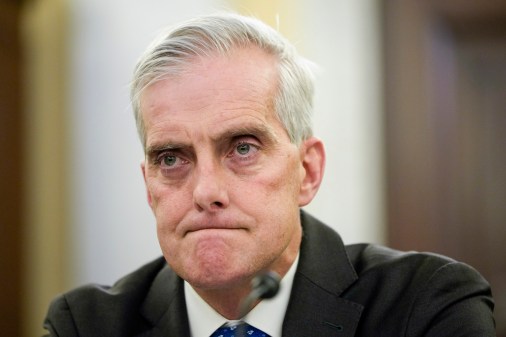The Veterans Affairs Department released the long-awaited request for proposals today for the commercial scheduling system that will replace the agency’s existing patient scheduling module, which was at the center of a nationwide scandal involving falsified wait times and veteran deaths.
VA detailed its new Medical Appointment Scheduling System, which will replace the patient scheduling module within the Veterans Information System and Technology Architecture, VA’s main electronic health record system known as VistA. Contract documents describe a five-year effort with two option years and a maximum total value of up to $690 million.
“When it comes to the care of our Veterans, we want the best technology the American marketplace can provide,” VA Secretary Robert McDonald said in a statement. “A new and innovative scheduling system is an essential tool we must have in place to enable us to provide our Veterans with timely and high quality health care.”
The VA wants the new system to:
- Standardize and improve scheduling processes and workflows.
- Provide the ability for all organizational levels to manage demand, supply and utilization of resources.
- Provide the capability to standardize data and business rules across the enterprise.
- Enable efficient centralized and decentralized scheduling programs.
- Enable greater automation, efficiency, reliability and oversight.
- Meet congressional and other external stakeholder reporting requirements.
“We are seeking vendors who will work closely with us and can meet our timeline,” VA Chief Information Officer Stephen Warren said. “We are dedicated to finding the right partner to help us create and implement our modern scheduling system.”
VistA’s scheduling module plays a much more fundamental role in the larger cycle of patient care and VA operations than many realize. VistA scheduling not only gets veterans appointments, but the data generated by the scheduling system is critical to the long-term management of VA’s medical practices and finances. Everything from health trends in specific populations of veterans to the amount of federal reimbursements provided to individual VA clinics is tied to the VistA scheduling system. Adding to the importance of a robust scheduling module are VA’s plans for telehealth, an army of home care providers that is offline in remote locations for extended periods of time, and the agency’s plans for mobile and Web-based self-service applications.
VA plans to take 30 days to evaluate written proposals before selecting the best options. Finalists will then be required to develop full demonstration versions of their system for evaluation by VA schedulers, according to Warren, who briefed reporters last week.
The VistA scheduling module is dependent on at least 31 current VistA software packages and plays a critical role in the continued operation of 71 different software packages within VistA, making incremental development and testing a critical component of the new MASS contract. “These dependencies represent over a thousand individual integration points,” the RFP states. “Data synchronization between MASS and VistA must be maintained, to support business processes dependent on appointment information.”
The RFP can be downloaded from the FedBizOpps.gov website. Proposals are due on January 9, 2015.






